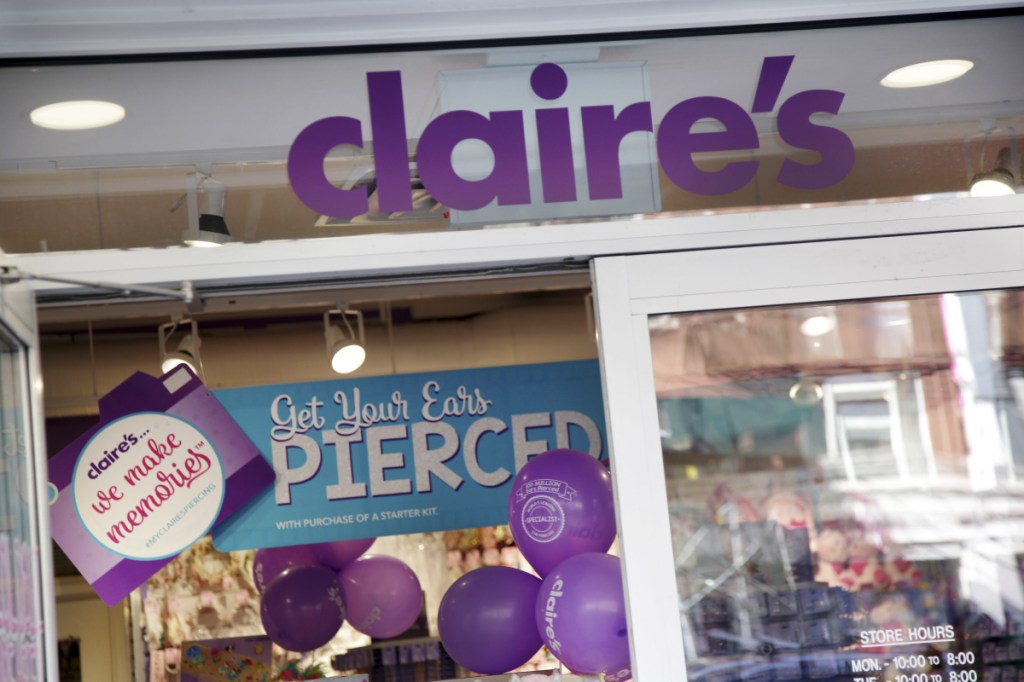WASHINGTON — The Food and Drug Administration’s confirmation of asbestos in some Claire’s makeup has sparked calls in and out of the agency to expand cosmetics’ regulatory safeguards.
The FDA has been looking into asbestos reports at Claire’s, which also sells teen- and tween-oriented jewelry and accessories, since 2017. Though Claire’s voluntarily pulled the products, it would not honor the agency’s request to recall the company-branded compact powder, eye shadow and contouring kits that had tested positive for asbestos.
The recall was requested because the products “should not be used by consumers,” the agency said in a statement Tuesday from departing FDA Commissioner Scott Gottlieb and Susan Mayne, director of the Center for Food Safety and Applied Nutrition. “Claire’s has refused to comply with the FDA’s request, and the agency does not have authority to mandate a recall.”
Because the FDA had no way to force the chain to take action, it issued a safety alert warning customers to steer clear of the three products.
The issue exposes the limitations of the agency’s powers, the statement said, as well as the holes in cosmetics regulations, which haven’t been updated since they were put in place in 1938, despite significant changes in the industry over the past few decades.
“These findings serve as an important reminder that under our current authority, the FDA only has limited tools to ensure the safety of cosmetics products,” the statement read. “We are dependent on manufacturers to take steps to ensure the safety of their products.”
Claire’s, which clawed its way out of bankruptcy in October after unloading $1.9 billion in debt, disputes the FDA results, claiming they contain “significant errors.”
“The FDA test reports have mis-characterized fibers in the products as asbestos, in direct contradiction to established EPA and USP [United States Pharmacopeia] criterion for classifying asbestos fibers,” Claire’s spokeswoman Melanie Berry said in a statement. “Despite our efforts to discuss these issues with the FDA, they insisted on moving forward with their release. We are disappointed that the FDA has taken this step, and we will continue to work with them to demonstrate the safety of our products.”
The Illinois-based chain, which is owned by Ascena Retail Group Inc., said there is “no evidence” its products are unsafe, but said it has pulled the products identified by the FDA from stores “out of an abundance of caution.”
The agency said it intends to review cosmetics manufacturers’ safety procedures, particularly with regard to asbestos. It also is creating a registry where makeup manufacturers, distributors and packers can provide health information about their products.
Some legislators have signaled support for the FDA in its quest to broaden its oversight of the industry. Following the FDA’s announcement, Rep. Frank Pallone, D-N.J., chairman of the Energy & Commerce Committee, which has jurisdiction over FDA, said he planned to introduce a proposal to modernize regulatory framework surrounding cosmetics. In early February, the Senate health committee said it intends to make cosmetics reform legislation a priority this spring.
Asbestos, a mineral fiber once common in construction materials, may occur naturally in the presence of talc, another mineral often used in powder-based cosmetics and products like baby powder. Inhalation or consumption of asbestos can cause serious respiratory diseases like lung cancer and mesothelioma.
The World Health Organization says there is no safe level of exposure to the mineral. Although the substance is broadly banned, including in the United Kingdom, the entirety of the European Union and Canada, no such ban exists in the U.S. The Environmental Protection Agency attempted to ban asbestos in 1989, but it was overturned in 1991, with the help of asbestos lobbyists.
In December, Johnson & Johnson came under fire after a Reuters report revealed the company had knowingly used asbestos-contaminated talc in its baby powder for decades without disclosing anything to regulators or consumers. Last month, the company was subpoenaed about its practices by the Securities and Exchange Commission and the Justice Department. The company has also been hit with thousands of lawsuits by consumers.
In the statement, Gottlieb and Maynes called for collaboration among lawmakers, manufacturers and stakeholders to sufficiently protect consumers. They hinted at possible tools for more successful regulation, including improvements in registration requirements, quality of ingredients, reporting practices around safety and access to records, including consumer complaints.
“Our program for cosmetics also has remained small despite the industry’s significant expansion and global supply chain,” the statement said. “We need to expand the scope of what we’re able to do.”
Copy the Story LinkSend questions/comments to the editors.



Success. Please wait for the page to reload. If the page does not reload within 5 seconds, please refresh the page.
Enter your email and password to access comments.
Hi, to comment on stories you must . This profile is in addition to your subscription and website login.
Already have a commenting profile? .
Invalid username/password.
Please check your email to confirm and complete your registration.
Only subscribers are eligible to post comments. Please subscribe or login first for digital access. Here’s why.
Use the form below to reset your password. When you've submitted your account email, we will send an email with a reset code.